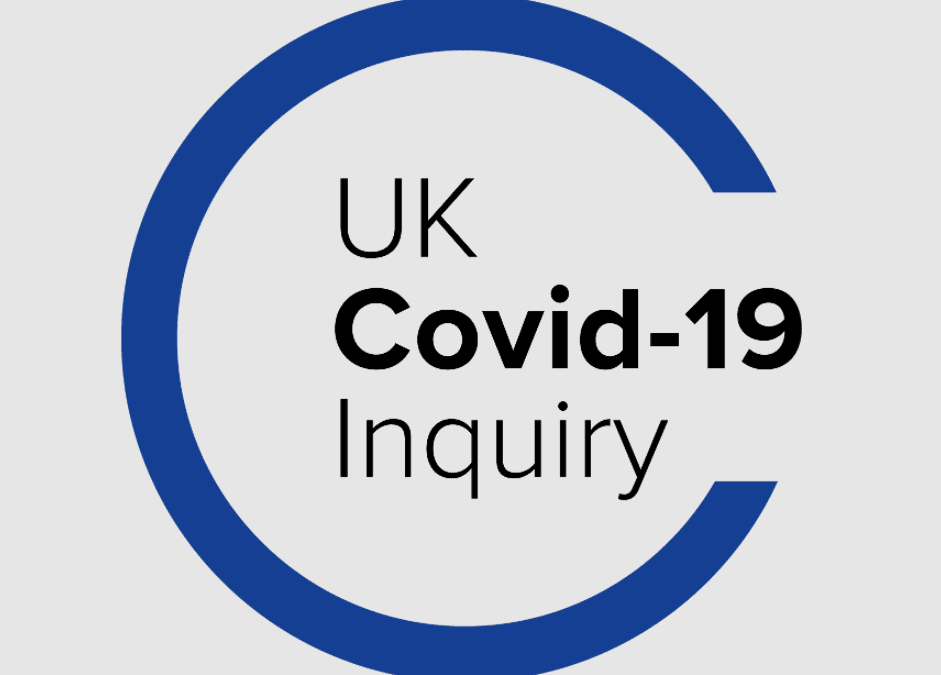

The West Should Not Pressure Ukraine to Negotiate With Putin
Thanks to Noah for his response to my reply to his original post about the morality of sending arms to Ukraine.
He takes issue with my characterisation of his post as being “wrong on every level” on the grounds that he was merely expressing reservations and raising doubts about the issue, not taking a firm stance. However, questions always have premises, hidden or not, and the framing and choice of a given question can be rhetorical in nature. If someone were to write an article with the question, “How much more weaponry should we supply?” then clearly we could infer their support for sending weaponry.
I’m not suggesting his position was so unambiguous, but I think it was reasonable to infer a position broadly critical of the West. Nonetheless, my reasoning didn’t depend upon that. My point is that the premises were wrong: freedom and self-determination weren’t given any weight. Similarly, in the highly-charged debate over abortion, if a person were to focus their argument on the hardship of the fœtus, those on the pro-abortion side would find that an erroneous or at best incomplete argument.
Also, I think the question was posed to the wrong audience. We might ask how much the Ukrainian people are willing to suffer, but my view is that it’s absolutely not for us to answer that question: it’s for the Ukrainians themselves to decide the value of their own freedom and what negotiating position they wish to take in any peace talks. I also disagree with Noah’s view that the West should pressure Ukraine to negotiate with a person who is, to quote Norm Macdonald’s memorable meiosis, “a real jerk”.
Noah goes on to clarify some of his other lines of argumentation where he believes I misstated his points. I’ll discuss where we differ. By relating the supply of weaponry to hardship in the manner that he has, it does play into the hands of aggressors, and there’s a moral component attached to that argumentation which wasn’t considered in his original post. I’m happy to see him address this point, although I think we’re miles apart on a key assumption, which I’ll quote:
Suppose, for the sake of argument, that a reasonable worst-case scenario is Russia killing every last Ukrainian. In that case, the argument for supplying arms would be overwhelming, as no outcome could be worse for ordinary Ukrainians than this.
It seems to me that Noah believes this to be an almost self-evident fact, but this is quite wrong. Annihilation is already a possible worst-case scenario, and has been a near-constant feature of international affairs for decades. Of course he’ll be aware of the doctrine of Mutually Assured Destruction (aptly, ‘M.A.D.’) which evolved in response to such threats. It’s necessary not to be intimidated, and to assure one’s enemy that the use of nuclear weapons (reasonably, any nuclear weapons) would lead to a proportionate response. In this war, the M.A.D. doctrine is very clearly in play, both enabling NATO to supply weapons to Ukraine and also preventing NATO establishing a no-fly zone, because annihilation of everyone in the world would be a very real and ‘reasonable worst-case scenario’ if Russia were to attack weapons convoys in Poland, or if NATO were to shoot down Russian planes.
But I think Noah was probably only talking about a foreseeably dreadful conclusion of purely conventional warfare. But on this, the calculus being made by Zelenskyy, the Ukrainian Government and apparently the people at large seems, contra Noah’s assumption, not too dissimilar. That is to say, in the words of General John Stark: “Live free or die: Death is not the worst of evils.”
There are plenty of Churchill quotes of a similar vein, but the underlying truth in all of them is that an army – and in total warfare also a people – must be willing to face destruction, almost as a necessary precondition of victory:
What is our aim?… Victory, victory at all costs, victory in spite of all terror; victory, however long and hard the road may be; for without victory, there is no survival.
Sun Tzu took this to an almost inhuman but ruthlessly brilliant extreme, and as a tactic deliberately situated his army on ‘death ground’ – where there was no possibility of retreat – in order to ‘inspire’ his men with fierce determination. We see the situation in the encircled Mariupol now, where in just the last 24 hours Russia demanded the surrender of Ukrainian forces – and which the defenders refused (although history doesn’t yet record whether they said “Nuts!”). Surely we know what that could mean for them? I don’t wish to put words into Noah’s mouth, but it seems that by his logic this was an immoral act, and they ought to have surrendered; we know that more civilians have died and will die as a result. Yet I am awed and humbled by their courage in the face of this unimaginable horror.
In passing, I’ll note that there’s a phrase doing the rounds at the moment: “The West is determined to fight with Russia to the last Ukrainian.” This line was originally coined to describe Saudi Arabia’s willingness to see the U.S. wage war with Iran “down to the last American soldier”, but it’s inapt here. I’m sure some people are trying to tell the Ukrainians what to do, but I wouldn’t dare. However, as I’ve said, if they want to fight – as they clearly do – then it’s our moral duty to help in any way we reasonably can. And I believe the Ukrainians do have the moral right to fight to the last Ukrainian soldier, and at the risk of greater civilian losses. But as a former U.K. Chief of Defence Intelligence is reported to have said in the last few days:
Frankly, I think they will hold out as long as we can supply them and for as long as their morale holds up, and those are two very easy things to say but really challenging to do.
Noah makes another point that I should address:
[I]f you take the view that freedom is ‘an absolute moral right’, then the West should be intervening in every conflict around the world where people believe they’re living under foreign occupation.
That’s something of a non sequitur. A moral right for one person doesn’t incur an ethical obligation on another, and a true ethical philosophy must weigh factors such as limitations on knowledge, judgement and resources. In simple terms, the police can’t investigate every crime, and free nations aren’t the omniscient, omnipotent and omnipresent police of the world. And there are many situations where gleefully handing out weapons to anyone with some kind of moral claim would be a recipe for utter disaster (like arming the Palestinians).
To Noah’s following points about the complicated nature of events in Ukraine from 2014 to the Russian invasion, where he casts some doubt on the moral claims of Ukraine, I’ll concede that Ukraine has had a very troubled recent history, and that the battle to wrest political control of Ukraine from Russia in 2014 looks somewhat murky (but no, not a CIA plot). However, following the 2014 revolution there have been elections (with the 2019 presidential election declared by observers to be free and fair), and I’d note that he omits to mention any historical details that don’t place pro-Russian interests in the best possible light, such as the attempted assassination by poison of the eventual winner of the 2004 election Viktor Yushchenko, election frauds, imprisonment of anti-Russian political figures, and so on over the years. It’s clear that both sides, through their various allies and factions, feel and act as though they’re playing a desperate game with lethal consequences for the loser, but as we both agree that doesn’t justify taking the non-democratic route of escalation to war.
Sadly, Putin doesn’t see that clear bright line, and I think he probably spends a lot of time brooding over how he was outplayed in 2014 in a rather dirty game of which he considers himself a practised expert, and in which he unaccountably feels cheated – showing a lack of self-awareness. Clearly he’s been allowing anger and bitterness to cloud his judgement, when emotional self-control is another thing he prides himself on. His state of mind must have further deteriorated on discovering even his prized FSB helped get him into a terrible pickle by just telling him what he wanted to hear about the Ukrainian people’s views of Russia. And while there’s been much talk of a recent psychological collapse, I think his state of mind is reflective more of a slow and progressive decline that began in 2003 with the ‘colour revolutions’. One can only hope that the people around him will see what a perilous game he’s playing, and that he’s not going to get any better at playing it.
As to whether we’re both ‘second-guessing’ the views of the Ukrainian people and their willingness to see this through on the battlefield, I’ll happily concede that no-one including the Ukrainians themselves can have full knowledge of the precise attitudes of every Ukrainian, but at the same time I don’t think I’m reading tea-leaves when I suggest the population supports (staunchly, I dare say) both the defence of their country and their democratically-elected government.
I’m reminded of conversations I’ve had in the past with Iranian dissidents, including ex-pats, who’ve been willing to condemn in the strongest terms the Iranian regime for all of its brutality and medieval thinking, while at the same time insisting that if anyone were to drop bombs on even just their nuclear facilities, everyone would take the regime’s side. I was taken aback the first time I heard that, but on reflection it should have been obvious that they simply loved their country, right or wrong. And in this case, similarly, internal political differences seem to have been temporarily swept aside.
Then again, I think we should – as a universally-applicable rule – be cautious about how much of what we see on the internet is truly representative of a nation, and always consider the source. Additionally, there will naturally be a certain amount of preference falsification in such an extremely polarising situation, meaning that any polling – which could be advanced propagandistically by both sides – should be taken with a large pinch of salt.
More broadly, there is an information war going on, which large sections of society in many parts of the world are engaged in whether they realise it or not, from politicians, journalists, social media users and people on the street. There’s practically no chance of any true objectivity, since ‘truth is the first casualty of war’.
Ian Rons is the IT Director of the Daily Sceptic.








